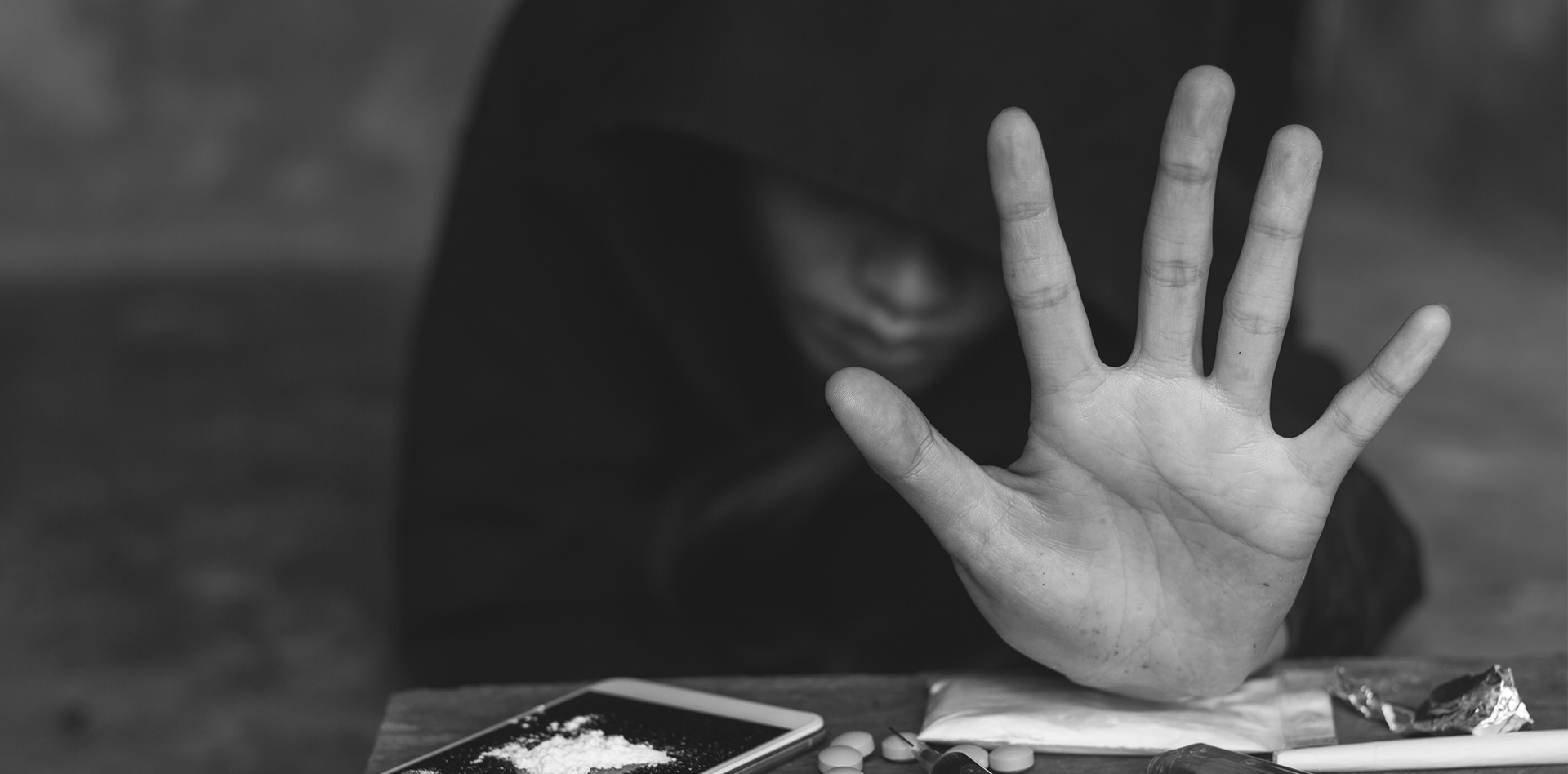
Coricidin Cough & Cold - Triple C's
Triple C is an abbreviation used for Coricidin Cough & Cold, a branded OTC cough medication.
In recent years, triple Cs have gained traction as a widely abused substance. Triple C abuse is most prevalent among teens and young adults as the substance can be found in most household medicine cabinets.
The active ingredient in Coricidin Cough & Cold is DXM (dextromethorphan). DXM is categorized as a morphinan, a class of medications that has dissociative, sedative, and stimulant properties. Taking high doses of DXM can induce visual hallucinations and trigger dissociation. This form of DXM abuse is known as robotripping.
Dextromethorphan products are not currently regulated by the federal government, meaning that the dangers of triple C abuse continue unchecked.
What are Triple C's?
Triple C is the informal name for Coricidin Cough & Cold products, branded versions of cough and cold medicines that are commonly abused by teens.
Many Coricidin products contain dextromethorphan, an antitussive or cough suppressant. DXM is found in 120 OTC cold medications. The substance can be used alone or in combination with:
- Analgesics (acetaminophen)
- Antihistamines (chlorpheniramine)
- Decongestants (pseudoephedrine)
- Expectorants (guaifenesin)
While DXM is safe in small doses, high doses of this substance can trigger dissociation and hallucinations.
These Coricidin products are most commonly abused:
- Coricidin HBP Cough Cold Medicine
- Coricidin HBP Maximum Strength Flu
- Coricidin HBP Chest Congestion & Cough

Triple C's Abuse
Those who abuse triple Cs typically gravitate toward Coricidin HBP Cough Cold Medicine because it contains the highest dose of DXM. This formulation contains 30mg of DXM, while the doses of DXM in other Coricidin products are between 10mg and 15mg.
Since the federal government does not regulate dextromethorphan products, it is possible to buy Coricidin medications without a prescription.
When triple Cs are taken as directed, they are safe and generally effective. Abusing triple Cs, though, can be dangerous and possibly deadly.
In 15 states, minors are now prohibited from purchasing dextromethorphan products. Although this is a move in the right direction, triple C abuse remains a pressing concern in the United States, especially among teens and young adults.
Are Triple Cs Dangerous?
Taking normal doses of antitussive like triple C is safe. In high doses, this medication can provoke the following severe side effects:
- Nausea
- Vomiting
- Abdominal pain
- Slurred speech
- Loss of muscle control
- Severe stomach cramps
- Increased blood pressure
- Irregular heartbeat
- Brain damage
When you take dextromethorphan in higher doses than recommended, you are liable to trigger intense hallucinatory and euphoric effects that can persist for six hours or more.
It is considered safe to take between 10mg and 30mg of dextromethorphan every six hours, depending on your age and body mass. Extremely high doses of DXM can lead to overdose.
The most reported symptoms associated with triple C overdose include:
- Slow and labored breathing leading to respiratory depression
- Blurred vision
- Bluish lips or fingernails
- Difficulty standing up or walking straight
- Nausea
- Vomiting
- Sudden increase in body temperature
- Blood pressure abnormalities
- Heart palpitations
- Accelerated heartbeat
- Auditory hallucinations
- Visual hallucinations
- Seizure
- Coma
Additionally, triple C contains high doses of acetaminophen. Although this OTC painkiller is one of the safest drugs on the U.S. market, it may cause liver damage in doses of over 4,000mg. One CCC pill contains 300mg of acetaminophen, meaning that taking just half a package of these tablets would exceed the daily limit of this substance. The sustained abuse of triple Cs can contribute to liver damage.
Effects of Triple Cs
The effects induced by taking triple Cs unfold over four distinct phases, also known as plateaus. The high triggered by DXM varies depending on the dose as follows:
- Mild stimulation: The first plateau is achieved after taking DXM in doses of between 1.5mg and 2.5mg per kilogram of bodyweight. For a 120-pound teen, this translates to between 82.5mg and 138mg of triple C – 8 to 14 maximum strength triple C gel caps. This stage of the DXM high involves euphoria, feelings of floating, and auditory changes.
- Euphoria and hallucination: Taking DXM in doses of between 1.5mg and 2.5mg per kilogram of bodyweight leads to intensified feelings of euphoria and hallucinations when closing the eyes.
- Distorted visual perceptions and loss of motor coordination: At the third plateau, those who abuse DXM are laying down prone, experiencing heavy hallucinations and altered consciousness. While this is not usually dangerous, it may lead to problems with vision. This plateau is achieved after taking DXM in doses of 7.5mg per kilogram of bodyweight and up.
- Dissociative sedation: At the fourth plateau, you may lose feeling or sense of your body, experiencing continuing hallucinations.
Don’t Let Triple C's Hold You Back
Get The Help Your Loved One Needs at Gratitude Lodge
Addiction Potential of Triple Cs
Law enforcement agencies report that triple Cs are chiefly abused by adolescents, teens, and young adults.
These are some common signs of triple C abuse in adolescents and teens:
- Declining grades at school
- Absenteeism at school
- Empty cough medicine packages in the trash
- Missing cough medicine products from medicine cabinet
- Lack of cooperation with parents and teachers
- Hostility
Helping Addicted Teens
Any substance abuse in teens can cause lasting harm to developing brains.
If you suspect that a teen loved one is abusing this over the counter medication, it is essential to connect them with professional help. Evidence-based treatment with CBT (cognitive behavioral therapy) aims to change the flawed thoughts and behaviors associated with the abuse of medications like triple C.
While abusing dextromethorphan is not likely to lead to a diagnosable addiction, many withdrawal symptoms may present when you discontinue use. The severity and presentation of symptoms varies depending on:
- Physical makeup
- Dosage of DXM
- Frequency of DXM abuse
The withdrawal symptoms triggered by triple Cs are not usually life-threatening, but they may lead to serious complications if not treated in a clinical setting. The most reported withdrawal symptoms include:
- Nausea
- Vomiting
- Diarrhea
- Appetite loss
- Upset stomach
- Significant weight loss
- Cravings
- Hallucinations
- Flashbacks
- Uncontrollable tremors
- Insomnia
- Cold sweats
- Night sweats
- Anxiety
- Restlessness
If you engage with a supervised medical detox program when withdrawing, you can access non-narcotic medications that can effectively manage the above symptoms as they manifest. You can then transition into ongoing inpatient or outpatient therapy. We can help you with this at Gratitude Lodge in Southern California.

Treatment for Triple C Addiction at Gratitude Lodge
Here at Gratitude Lodge in Southern California, we can help you fight back against any type of addiction. We have affordable and pet-friendly luxury rehab centers in the following locations:
Take advantage of our supervised medical detox program to detox from triple C and any other substances as comfortably and safely as possible. You can then transition directly into one of the following treatment programs:
- 30-day inpatient program
- Intensive outpatient program
- Dual diagnosis treatment program (for co-occurring disorders)
All Gratitude Lodge addiction treatment programs involve individualized treatment that may include:
- Medication-assisted treatment
- Psychotherapy
- Individual counseling
- Group therapy
- Family therapy
- Holistic therapy
Evidence-based treatments address the physical and psychological components of addiction. Access a 12-step immersion program so you can also deal with the spiritual aspect of addiction recovery and consolidate this in daily meetings.
When you complete your treatment program, you will leave equipped with relapse prevention strategies and an aftercare plan that maximizes the likelihood of sustained sobriety without relapse.
Call admissions today at 800-994-2184 when you are ready to move from active addiction into rehab and sustained recovery.
DRUG ADDICTIONS WE TREAT
Our Partners
WE ACCEPT MOST PPO INSURANCE
Drug and alcohol detox should be accessible to everyone. At Gratitude Lodge,
we work with most insurance plans to cover the costs of treatment.


















